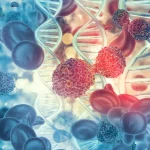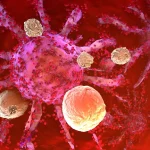Constipation
Constipation is defined as a reduction in the evacuation of feces formed in the intestine.
It is characterized by harder stools and increased difficulty in evacuating.
Certain drugs used in chemotherapy have a toxic effect on the nerves, resulting in a slowing of intestinal activity that can lead to constipation. In other cases, constipation is related to the absorption of analgesics or narcotics. Also, a liquid diet over a prolonged period can result in constipation problems.
Helpful hints
- Drink at least six to eight glasses (two to three liters) of preferably warm or hot water or other fluids every day, unless otherwise directed by your medical team.
- Gradually increase the amount of fiber in your diet with fresh fruit, raw vegetables, wholemeal bread and whole grain cereals (effective only if accompanied by an optimal fluid intake). Add one or two tablespoons of wheat bran to cereals, fruit juice, milkshakes, au gratin dishes, etc.
- Add laxative fruits to the diet (e.g. prunes, dates or figs or prune juice or nectar).
- Exercise regularly.
Severe constipation is painful and uncomfortable. You are advised to contact the oncology team in the following situations:
- Hard, swollen abdomen;
- Severe abdominal pain;
- Vomiting feces;
- Recent history of abdominal surgery;
- Change in urinary habits;
- Difficulty performing daily activities;
- Three or more days without a bowel movement despite a laxative medication taken properly.































